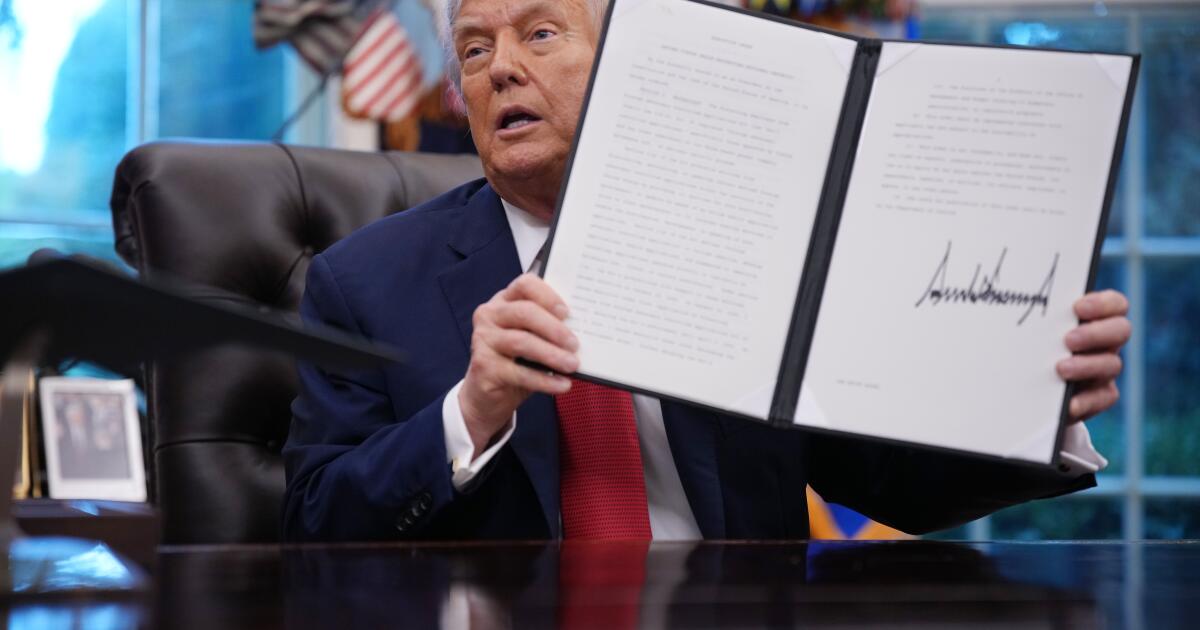The Supreme Court ruled that Trump may remove gender markers from new passports
Washington – The Supreme Court has cleared the way for President Trump to remove gender markers from new passports and require applicants to designate male or female at birth.
By a 6-3 vote, the justices approved another emergency appeal by Trump’s lawyers and halted a Boston judge’s order blocking the president’s new passport policy from taking effect.
“Showing a passport holder’s gender at birth no more violates the principle of equal protection than showing their country of birth,” the court said in an unsigned ruling. “In both cases, the government is merely confirming the historical reality without discriminating against anyone.”
Justice Kitanji Brown Jackson filed a dissent, joined by Justices Sonia Sotomayor and Elena Kagan.
She said there was no emergency, and the change in passport policy would pose a risk to transgender travelers.
“The current record shows that transgender people using gender-nonconforming passports face violence, harassment and discrimination,” she wrote. “Airport checkpoints are stressful and invasive for travelers under normal circumstances – even without being forced to present government-issued identification documents that do not reflect one’s identity.
“Thus, by preventing transgender Americans from obtaining gender-conforming passports, the government does more than make a statement about its belief that transgender identity is ‘false.’
Upon taking office in January, Trump ordered the military to remove transgender soldiers from its ranks and told agencies to remove “gender identity” or transgender references from government documents, including passports.
The Supreme Court upheld both policies by striking down judges’ orders that temporarily blocked the changes as discriminatory and unconstitutional.
US passports did not have gender markers until the 1970s. For most of that time, passport holders had two choices: “M” for men and “F” for women. Beginning in 1992, the State Department allowed applicants to use a gender marker that differs from their sex at birth.
In 2021, the Biden administration added an “X” marker as an option for transgender and non-binary individuals.
Trump called for a return to the old era. He issued an executive order on “extremism of gender ideology” and said his administration would “recognize two sexes, male and female.” He requires “government-issued identification documents, including passports” to “accurately reflect the sex of the pregnant woman” determined at birth.
The American Civil Liberties Union is filing a lawsuit on behalf of transgender individuals who would be affected by the new policy. They won an injunction in June from U.S. District Judge Julia Kubik, who blocked the new policy from taking effect.
“What millions of Americans take for granted: passports that allow them to travel without misidentification, harassment or violence,” the ACLU advocates said in a Supreme Court appeal last month.
They said the administration’s new policy would reduce the usefulness of passports for identification.
“By classifying people based on the sex assigned at birth and specifically by issuing sex markers on passports, the State Department deprives plaintiffs of a usable identification document and the ability to travel safely… [It] Undermining the original purpose of passports as identity documents is that authorities look at the bearer’s appearance,” they wrote.
But Solicitor General D. John Sawyer argued that the plaintiffs did not have jurisdiction over the official documents. He said the judges should overturn the judge’s order and allow the new policy to take effect.
“Private citizens cannot compel the government to use gender-incorrect names on identification documents that fail to reflect the person’s biological sex — especially on identification documents that are government property and an exercise of the president’s constitutional and statutory authority to negotiate with foreign governments.”




Post Comment